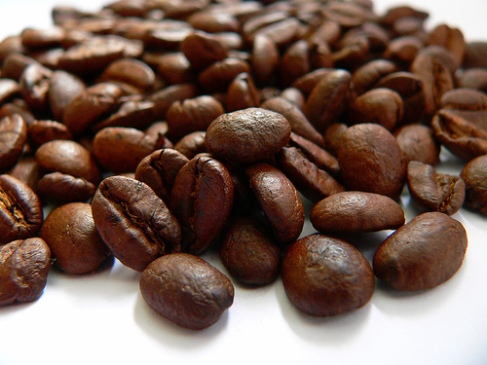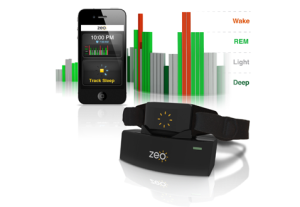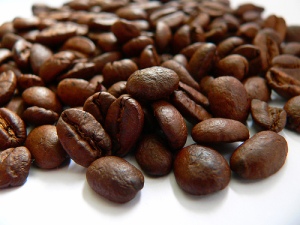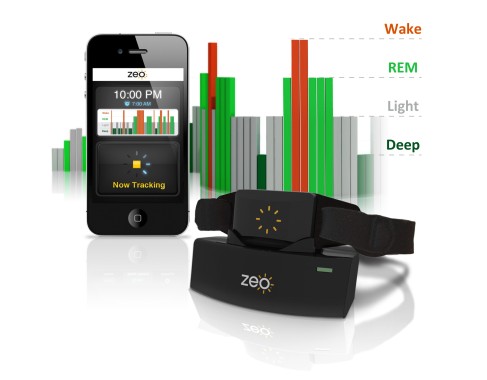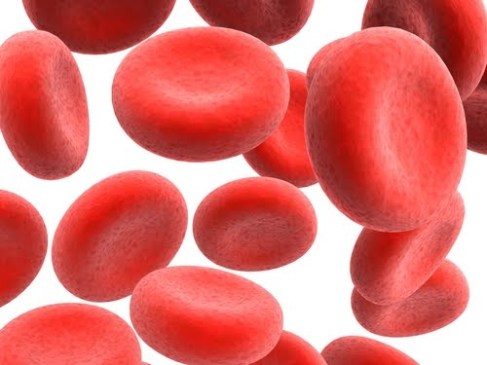Posts Tagged ‘fitness’
It’s been about a week now since I’ve started re-introducing some caffeine back into my diet due to my ideas on hacking my caffeine stimulant metabolism.
I’ve made the following changes:
– no chocolate (except in my protein shake in the AM)
– caffeine ONLY in the AM.
– broccoli and sulforaphane supplementation.
I haven’t yet tried to isolate which one of these variables is now allowing me to take in caffeine and sleep less but the results have been dramatic.
I basically went from about 9 hours of sleep with Adderall XR and 20-30mg of caffeine to about 6.5 hours of sleep with just ~20mg of caffeine.
My regular sleep WITHOUT any caffeine is just about 6.5 hours so I think I’m going to see law of diminishing returns on this path if I try to optimize further.
I’m able to sleep within 1-2 minutes of going to bed as well.
In conclusion. I’ve gone from 9 hours of sleep down to 6.5 hours of sleep with the same level of productivity. No change in wakefulness. No change in gym recovery, etc.
The real test is whether I can sustain this for six months or so.
I’m declaring a new class of applications – hostageware.
Apps that you HAVE to use because there is no valid / realistic alternative but which are SO buggy and such crap that they drive you insane.
The Zeo is the archetype.
The Zeo has a myriad of problems which seem too numerous to enumerate in one blog post.
Regardless, I’ll try to name a few.
From a platform perspective, they’ve pushed the concept of the ‘ZQ’ to explain how solid your sleep was from the night before.
However, it’s a JOKE metric.
For example, my Zeo told me I had a ZQ of 61 and that I slept 5:26 minutes.
The previous night my Zeo told me I had a ZQ of 82.
Now I’ve been controlling my sleep TIGHTLY for the last week and I can tell you that LAST NIGHTs sleep was MUCH better than the previous night.
Why? Because I was training the previous day and had a lot of recovery to catch up on. All of my subjective measures (morning, mid, and evening wakefulness and creativity) were high and my performance was exemplary.
Getting LESS sleep and more efficient sleep is a GOOD thing and not a bad thing.
It’s been YEARS since this problem was exposed. This should have been corrected in version 1.1. Have they fixed it yet?
Nope.
Another example. Last night I Slept from 12:08AM until 6:50 AM. As printed on my Zeo and recorded by me before and after I slept.
Guess how many hours the Zeo says I slept. It thinks I only slept 5:26 minutes. Major discrepancy.
I’ve asked Zeo 3-4 times for an explanation here and I keep getting conflicting answers.
The only conclusion I have is that NO ONE within Zeo actually uses their product.
One could come to the conclusion that it’s the sleep version of a lie detector (AKA snake oil) and that I’m just observing placebo effect.
However, in my experience, the deep and REM measurements are somewhat accurate and valuable to my sleep hacking.
Every time the Zeo tells me that my REM and deep numbers are off, I notice correlated mid-day sleep pressure / drowsiness (which impacts my work).
So for now I’m stuck, trapped. Zeo is keeping me a hostage.
I’d drop them in a MINUTE if there was a viable alternative.
Update: Another good example of the use of the Zeo is the ‘time to Z’ which is the amount of time it took you to all asleep. As part of my hacking I have dramatically lowered my time to Z measure. Which is great, but it’s not 1 minute which is what it suggested last night. I was definitely mellow last night but I would say it was more like 5 minutes. It’s just hard for Zeo to be very reliable with one EEG sensor but then again they shouldn’t sell their product as BEING reliable.
tl;dr. I figured out a way to hack the speed of my caffeine metabolism with Sulforaphane which induces the enzyme cytochrome. This means I should be albe to drink caffeine again!
I’ve had a problem with caffeine since I was about 25. My body would have problems sleeping after consuming caffine in the morning.
I ended up needing to sleep up to 9 hours per night – which is no fun.
Fast forward to 2011 when I paid 23andme to sequence my genenome.
I find out that I have Genotype CC for SNP rs762551 which means I’m a slow caffeine metabolizer. (AKA CPY1A2)
This changed everything! I suddently realized WHY I was having such hard problem sleeping.
The problem is that Caffeine has a lot of advantages and I wanted to added it back into my diet in moderation.
If only I could find a way to metabolize it faster.
Then it dawned on me that I should research how it is metabolized and the gene that was involved in creating the enzyme.
If I can induce gene expression maybe I can get the caffeine out of my system by the time I go to sleep.
Further, this gene has a number of other medical benefits including anti-cancer properties as it creates enzymes to metabolize carcinogens.
Interesting enough it also metabolizes melatonin, nicotine, and other interesting compounds.
So I Google for CPY1A2 and caffeine and how to induce this gene and I find this:
Tracking it down I found this study regarding Brocolli impacting caffeine metabolism:
Abstract
OBJECTIVES:
Induction or inhibition of cytochrome P450 (CYP) enzyme activities, enzymes that activate or detoxify xenobiotics, is one mechanism by which vegetables may alter cancer risk. As the effect of food on CYP enzyme activities have not been studied in the Jordanian population, we examined the effect of supplementing the diet with broccoli on CYP1A2 and CYP2A6 activities.
METHODS:
Five men and five women, non-smokers, consumed a standard diet of broccoli (500 g) for 6 days. Enzyme activities were determined by measuring urinary metabolite ratios after a 100 mg caffeine tablet on the seventh day.
RESULTS:
The mean CYP1A2 activity for men (21.1+/-3.2) was significantly lower than that for women (27.6+/-1.6) before the consumption of broccoli (P<0.05). These activities were significantly induced in both men (52.5+/-6.6) and women (36.6+/-8.4) after a standard diet of broccoli (P<0.005). Similarly, the mean value of CYP2A6 activity for men was 0.061+/-0.040 and for women, 0.144+/-0.039 before consumption of broccoli, which were significantly different (P<0.05). The activity of CYP2A6 was induced in both groups significantly after broccoli consumption (P<0.05). The mean value for men was 0.193+/-0.02 and for women, 0.214+/-0.064.
CONCLUSION:
Our study on a group of Jordanians confirmed the well-established observation that broccoli induces CYP1A2 activity. This study also demonstrates the effect of gender and broccoli consumption on CYP2A6 activity in Jordanians.
So this is pretty sweet.
It looks like I can add broccoli to my diet and help improve my caffeine metabolism. Win.
Here’s the full list of known inducers:
| Broccoli | Chronic smoking | Moricizine |
| Brussel spouts | Clarithromycin | Omeprazole |
| Cabbage | Erythromycin | Phenobarbital |
| caffeine | Esomeprazole | phenytoin |
| carbamazepine | griseifulvin | Rifampin |
| Cauliflower | Insulin | Ritonavir |
| Charbroiled foods | Lansoprazole |
But why broccoli ? And how much broccoli do I need to eat?
So I search Amazon for broccoli supplements and then I find this.
Win. It looks like others have found that broccoli supplements are valuable. In this case it looks like they’re used for sulforaphane.
What’s sulforaphane? And can it help with caffeine metabolism?
Sulforaphane and dietary consumption of cruciferous vegetables are known to affect the action of drug-metabolizing enzymes in vitro and in preliminary human studies.[6] Although no side effects or direct drug interactions have been reported as of 2008, people taking prescription drugs are advised to consult a doctor before taking sulforaphane or broccoli-sprout extracts.
The possible anticancer activity of sulforaphane may be related to the induction of phase-II enzymes of xenobiotic transformation (such as quinone reductase and glutathione S-transferase), and enhancing the transcription of tumor suppressor proteins, possibly via inhibitory effects on histone deacetylase.[7]
It’s still unclear to me but my plan is to test with broccoli and broccoli supplements for 2-6 days and then try caffeine in the morning to see how it impacts my sleep.
Hopefully it works as I’m looking forward to being able to add caffeine to my lifestyle again.
Woke up at 8AM and had 1g of green tea steeped for about 5 minutes. This was combined with about 30g of MCT oil, 20g of grass fed butter, and 10g of coconut oil.
Tasted fine. More green tea would be better and maybe salt free butter. But for an early experiment it is fine.
Noticed NO problems of foggy brain today in fact I was very productive.
Worked out at the gym and got in a good workout without feeling tired. I think this is primarily due to focusing on recovery though as I haven’t been lifting for the last two days.
No sign of over performance. I didn’t feel over stimulated.
The real issue will come tonight when I try to get some sleep. If I’m able to go to sleep fast and still get a good 7 hours and feel relaxed I would say it’s a good experiment.
One potential screw up is that I did NOT have my supplements after the coffee which I think was a failure. I had them during lunch.
This might impact my circadian rhythm though as the Vitamin D could screw me up.
It’s enough that if there are any weird/unusual sleep activities tonight that I can’t rule multi-variable change.
I’m going to be making two major changes to my fitness regime tomorrow.
The first is that I’m going to try a cup of mild green tea in the morning.
This will include mct oil, butter, and coconut oil … I think the fats and the caffeine + theanine combo will REALLY kick ass as it will wake me up but also since it’s a MILD amount of caffeine won’t really impact my sleep at night.
I’m going to measure my dosage of the green tea so it isn’t variable.
The next is orthostatic heart rate monitoring to detect if I’m overtraining. My resting heart rate should be reasonable on days I’m expecting full recovery.
Basically you wake up and sit in bed still for 5 minutes and then measure your heart rate. You compare these values over the next few days. The higher the heart rate the more your body is trying to recover.
In my experience this really holds true so I’m excited to put this into practice.
When I was in Yosemite last year I was at about 10k feet and was having problems with acclimatization. My heart rate was WAY elevated. About 90 bpm… My normal RMR is about 55-60 so my body was clearly overwhelmed.
A lot of this is due to hypoxia of course but the body is in a similar state of stress when trying to recover from training.
There is a new product out called restwise which looks awesome in theory.
This article on the quantified self has me realizing that we need better ways for medical professionals to access self tracking data (especially in light of the death of Google Health).
I have tons of information now locked up that my doctor can’t get to.
She can’t see my weight as reported on Withings. She can’t see my Runkeeper heart rate activity. She can’t see my diet on MyNetDiary.
All of this data is very valuable and it should be broadcast to applications that can help doctors advise their patients.
Most of it isn’t too sensitive.
I might not want friends to see my current weight but if the data gets out there it isn’t a huge violation of my privacy.
In the past I’ve been critical of the Zeo. I found it was an expensive toy with no REAL use in the real world.
The problem is that the previous device required you to manually upload the data EVERY NIGHT and in my mind for biohacking this type of recurring manual intervention becomes annoying VERY quickly.
The Zeo Mobile does away with this though. You just start it on your phone and off it goes.
All your data is on your smart phone and in the cloud.
The cool thing is that I can wake up the next morning and determine if I need to go back asleep or not based on how much REM and deep sleep I’ve had the night before.
In my experience if I do not train the night before I need 1 hour of deep and 2 hours of REM.
If train the day before I usually need about 1:20 of deep and 2:30 of REM. Which translate to about 9 hours of sleep.
The problem is that I CAN accidentally wake up too soon and FEEL fine in the AM … but come around 2-3 PM I can crash hard.
The new Zeo has been a real win in this regard for me and I’m sticking to it religiously now.
Wow. So this is day 2 post anemia.
WHAT AN AMAZING RIDE I just had.. I feel like a million bucks!
Just a massive amount of power coming out of a stop. I’m able to maintain a cadence MUCH longer.
It seriously feels like I am 40% stronger than I was 2 weeks ago.
It’s interesting to note that I’ve been riding without my heart rate monitor because I keep forgetting to put it on.
So RunKeeper has a funny habit of picking up OTHER people’s Ant+ HRMs and logging points of data in my graph.
Comparing apples to apples. It seems that on the same stretch of road 2 weeks ago I was riding at 15MPH where now I’m riding at 20MPH. That’s a 33% improvement!
I love cows!
Today was my first post-anemia cycling and gym day. I don’t do any hard core cycling on my gym days. Usually just 20 minutes. About 8 miles or 350 calories.
The ride was REALLY easy. My legs were real strong. It felt like I could actually kick it up a notch and use a higher gear.
The data would seem to back this up already.
Today’s ride was about 16.73 MPH on average.
My last there rides were and 14.46 and 14.64 …
I did a similar ride which wasn’t exactly the same route but that was 13.70 MPH
Isn’t it awesome to have this data!
This is a 15% performance improvement.
Also, I didn’t particularly push it that hard on this ride more than I normally do.
I’m going to take a couple more measurements and see what is up.
I also might get a power meter for my bike to get more objective data.
I also lifted today and the results were vastly improved.
I was able to finish my entire workout without any fading in energy like last time.
Further, I only had MILD dizziness while doing deadlifts. It lasted maybe 2 seconds and wasn’t severe at all.
Hopefully by next week this is gone altogether.
I’m still using my 3x meal plan with red meat. Long term this isn’t a good strategy but it has worked like a champ to get me back in shape quickly.
As an aside. I think I discovered that I’m allergic to shellfish. At least mussels and clams.
I woke up this morning with a rough case of itching on my face and neck and I noticed the SAME thing last week as well.
This is new. I REALLY like seafood so this is a bit disturbing. They’re also good sources of iron so I’m going to have to figure out what is going on here.
What’s up with this? This makes me crazy :-P
Google releases the Android Open Accessory API but fails to ship ANT+ support?
ONLY USB and no Bluetooth for now.
This is amazingly LAME.
Sony can ship ANT+ for Android but Google can’t?
The demo they gave on the screen, with an Android game monitoring the pace of the bike could have actually been done directly with existing ANT+ open standard wireless.
In fact, my new Trek Madone 5.5 ACTUALLY HAS AN INTEGRATED ANT+ ALREADY.
I could download the existing game and throw my bike on a trainer and actually play the game via existing hardware using an open wireless standard with existing technology.
So now my bike needs to have a USB port? Lame.
For Google to adopt a new API but ignore existing open wireless standards is amazingly lame.
I did a bunch of research tonight on using oximiters and heart rate monitors for helping to diagnose sleep apnea.
I think I might have a mild sleep apnea. I was diagnosed before but the sleep lab was so pathetic that I just completely wrote off the results and never really went back.
It turns out that from what I can gather , polysomnographs are insanely expensive (like $2k per night). These are the sleep studies they run with an EEG, ECG, oximeter, etc.
Further, you can’t do one at home, and continually run sleep studies every night.
A Zeo, oximeter, and heartrate monitor could be used ot build a cheap polysomnograph. I have most of the hardware already but if you started from scratch you could build a decent one for like $750.
Not FDA approved by any means but once you’re diagnosed you can use this setup to test various sleep experiments (along with subjective quality of life measurements).
The biggest problem is that the oximeters are all targeted for active monitoring. They do no data recording.
It’s about $500 for one that does data recording and they don’t export to anything but a PC running Windows.
I’d love a way to hack something together to build a simple external data recorder.
One thing I want to play with is the ANT+ python module Kyle Machulis is writing in OpenYou …
I can use this to avoid having to first upload my data to Garmin and THEN analyze the data after the event. It will make it much easier to analyze and I could in theory even analyze the data in real time.
This would give me heart rate data as well as blood oxygen. Of course, most of the oximeters also include pulse rate so I might not need to wear a strap any more.
I really hate it when mainstream media covers lame science.
This study recently done at the University of Pennsylvania is interesting but not really helpful.
For starters. It was VERY small…. dozens of subjects:
In what was the longest sleep-restriction study of its kind, Dinges and his lead author, Hans Van Dongen, assigned dozens of subjects to three different groups for their 2003 study: some slept four hours, others six hours and others, for the lucky control group, eight hours — for two weeks in the lab.
This is the longest study of its kind? For two weeks? I’m confused.
Then there is this infographic:

What was the source of this data? Self reported? I don’t even know where to being with the flaws with self reported assessment.
Not surprisingly, those who had eight hours of sleep hardly had any attention lapses and no cognitive declines over the 14 days of the study. What was interesting was that those in the four- and six-hour groups had P.V.T. results that declined steadily with almost each passing day.
So subjects that needed 8 hours of sleep performed poorly when constrained to less hours of sleep? And we’re surprised by these findings?
And of course the NY Times doesn’t link to the actual study nor does it appear that the study is online from a Google search.
Part of the problem is that research community still doesn’t publish online.
However, when the NY Times publishes articles with such poor quality I’m not exactly encouraged to pay for articles of such low quality.
Also, why are they writing a story about a study done in 2003? That’s 8 years ago!
The biggest problem I have with this article is that the core idea of sleep optimization is to get the same quality of life with but with less sleep.
Telling people to just cold turkey start sleeping less isn’t going to have reasonable results.
You might as well tell random people to start running a marathon and then act surprised when they hurt themselves.
I have some initial conclusions from my ~2 weeks of sleep experiments.
– A pitch black room does increase my perceived sleep quality. I remember my dreams more and seem to have more dreams in general.
– The blue blocker sunglasses don’t seem to yield any meaningful result for me. This might be because of my current level of caffeine.
– Sleeping alone doesn’t seem to impact my quality of sleep either way.
– Sleeping with the Zeo itself interrupts my sleep. A bit of a heisenbug …
– Measuring my heart rate while I sleep also interrupts my sleep. However, it yielded some interesting results. While I sleep, I can see 3-5 peaks where my heart rate will temporarily jump from 43bpm to 75bpm… I assume these coincided with REM dreaming. I can’t get my heart rate monitor and the Zeo to sync up without exporting the data and re-importing it into a new system.
Here’s a run from while I was sleeping the other night.
I can’t perform extensive analysis on this just yet as I haven’t exported all the points.

My next big change is to quit caffeine again (I’m down to only 30mg) and then try to sleep without caffeine and wake up when I feel rested. I think I can migrate to bi-phasic sleep where I have a 5-6 hour core and then a 20 minute nap in the afternoon.
Part of this is confused by my rigorous athletic training which requires sleep for recovery.
Wow. This is really slick. The new Sony Ericsson Xperia phones have Ant+ integrated directly into the phone hardware.
This is huge as it means that more support for ANT+ will hopefully be forthcoming and other vendors
I am pleased to announce that the much anticipated ANT API for Android has now been released. The Sony Ericsson Xperia™ X8, Xperia™ X10 mini and Xperia™ X10 mini pro will be among the first commercially available Android phones to support ANT. The good folks at Sony Ericsson have indicated that support will be added to more devices in the near future. Applications will be able to utilize this API in the announced devices as well as in all future devices supporting ANT.
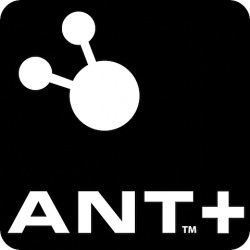
Here’s the data I have so far on tracking down my ideal sleep patterns.
– Too much caffeine is bad. Causes me to feel horrible in the morning, over sleep, etc.
– Too little caffeine is bad too. Causes me to wake up in the middle of the night with the inability to get back to sleep.

I think the reasons why are identical. My body feels lethargic when I start to go through withdraw symptoms.
If I have too much, the withdraw symptoms cause me to oversleep and feel horrible.
If I have too little, my natural sleeping patterns emerge and cause me to wake up after only 5-6 hours of sleep.
The problem is that in the past 5-6 hasn’t been enough.
It turns out that about 40mg is the right dosage so I have a digital scale and weigh my caffeine pills at 130mg every morning (they have internal buffer which needs to be accounted for).
Yet more problems emerge.
I require more sleep when I’m training (cycling, weight lifting) more often. Right now I require 8-9 hours of sleep.
So here is my next major hypothesis that I want to test.
…
Go down to ZERO caffeine.
Try to sleep 4-6 hours at night.
Sleep 30 minutes in the afternoon when the team is out to lunch.
Wear a heart rate monitor while I sleep to keep track of my resting heart rate (RHR). I think that it will show elevated RHR while my body is recovering.
In the past I’ve been able to do this… I was sleeping 5 hours at night and waking up feeling rested, but the problem is that in the afternoon I felt tired.
A nap would solve this.
So in theory my sleep would go down from 9 hours per night, to 6 hours per night.
A three hour savings – or 1.5 months extra a year of waking time. Amazing.
One of my big goals has been to try to get my sleep down to 5 hours of sleep per night.
A few years ago I was able to hit a zen mode for about 1 month where I was only sleeping 5 hours per night.
I’ve since been trying to duplicate that.
The theory is that if I can REM more efficiently, and I’m not disturbed during my sleep, then I can compact my sleep into a smaller time range.
The impact on my life could immense with a significant amount of time added to my life per day/week/month/year.
Adding 1-2 hours a night is like is like 2-4 weeks of extra waking hours per year!

So inspired by this post at the Quantified Self Boston meetup, I’ve decided to go heads down on another iteration of sleep optimization.
One of the things I’m struggling with is that due to my athletic training, sleep is required for repair of muscle tissue.
It’s hard to argue for shaving an hour off as my body just flat out needs the sleep (vs someone with a sedentary lifestyle).
I still think that I can shave some time off though.
Step 1, no interruptions
One of the major optimizations that I’m trying to make is reducing the number of trips to the bathroom at night by reducing water intake after 7pm.
So far I haven’t had much luck. I think I need at least 3-4 hours of no water intake before I go to sleep to allow me to sleep through the night without any interruptions.
The iPhone is now off for all alerts. The only thing that can interrupt me is work with a special reserved emergency phone number.
The cats are also downstairs in their room (which is now really nice and comfortable so I don’t feel guilty about keeping them there).
Step 2, NO light in the bedroom.
I made this change last night by blocking out all the light from my misc devices.
I also taped black trash bags to the windows to block out all light.
Long term (after a week) I plan on replacing the blinds with ones that block out all light if this turns out to be a major optimization.
This was my first night running with these changes.
So far the results have been really interesting.
My dreams last night were VERY vivid. I had a long dream about traveling to China, and losing my wallet. I also remember my dreams which is rare for me.
In my dream I took a flight to Singapore but they purchased my ticket wrong and somehow I ended up on a circular flight BACK to Singapore which took 34 hours. In my dream I slept the whole flight (I N C E P T I O N) and then woke at the remote end BACK in Singapore really pissed off and demanded a refund! (ha).
I also had a dream that I was fighting a war with monsters that had invaded earth. Some other alien civilization came and was providing us weapons to fight them. Yeah, I’m a scifi nerd.
Right after waking up I felt , ok… Felt very rested. It’s 1pm and I feel a bit lethargic though. I slept 8 hours so this might be an overtraining as I need to take my day off from training soon. I might listen to my body and just take a nap anyway.
Step 3, No blue light before I sleep
I’ve understood that this has been a problem with my body for some time. If I expose myself to too much light my body produces less melatonin and I have trouble falling asleep.
Apparently, there’s a hack which was discovered circa 2001 which is to just block out blue light.
I’ve already bought these glasses and will be running an experiment tonight to see what happens.
